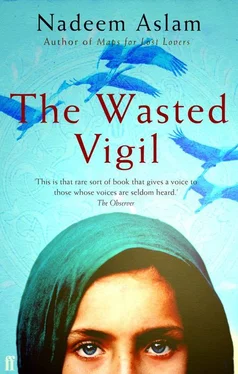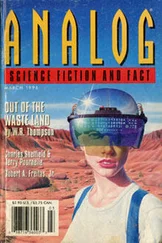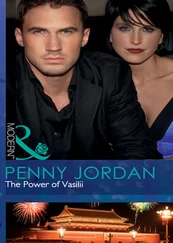Nadeem Aslam - The Wasted Vigil
Здесь есть возможность читать онлайн «Nadeem Aslam - The Wasted Vigil» весь текст электронной книги совершенно бесплатно (целиком полную версию без сокращений). В некоторых случаях можно слушать аудио, скачать через торрент в формате fb2 и присутствует краткое содержание. Год выпуска: 2009, Издательство: Faber and Faber, Жанр: Современная проза, на английском языке. Описание произведения, (предисловие) а так же отзывы посетителей доступны на портале библиотеки ЛибКат.
- Название:The Wasted Vigil
- Автор:
- Издательство:Faber and Faber
- Жанр:
- Год:2009
- ISBN:нет данных
- Рейтинг книги:4 / 5. Голосов: 1
-
Избранное:Добавить в избранное
- Отзывы:
-
Ваша оценка:
- 80
- 1
- 2
- 3
- 4
- 5
The Wasted Vigil: краткое содержание, описание и аннотация
Предлагаем к чтению аннотацию, описание, краткое содержание или предисловие (зависит от того, что написал сам автор книги «The Wasted Vigil»). Если вы не нашли необходимую информацию о книге — напишите в комментариях, мы постараемся отыскать её.
The Wasted Vigil — читать онлайн бесплатно полную книгу (весь текст) целиком
Ниже представлен текст книги, разбитый по страницам. Система сохранения места последней прочитанной страницы, позволяет с удобством читать онлайн бесплатно книгу «The Wasted Vigil», без необходимости каждый раз заново искать на чём Вы остановились. Поставьте закладку, и сможете в любой момент перейти на страницу, на которой закончили чтение.
Интервал:
Закладка:
He cannot stop thinking of Lara. The thought of her alone in the house last night. A night of stone. He sees in his mind the pitch-dark surroundings, the lake filled with the blackest ink, and the shiver of pale candlelight in one window, sees her figure dressed in white, which is all she has worn since she came. The set of clothes she was wearing when she dropped the rest into bleach is the only one with colour, and that she has folded away out of sight.
It was a mistake for him to have come here yesterday. Could this have waited until she had gone back to Russia? The children’s game of hangman — where one has to guess a word letter by letter, each wrong guess meaning that a friend draws a scaffold and then a noose and then a person suspended from that noose — has always terrified Marcus, the idea that every time one makes a wrong choice someone else gets closer to disaster, to death.
The traffic has thinned and he sees that Bihzad’s vehicle is stationary outside the school building. Perhaps he has seen Marcus and is waiting for him to catch up. He quickens his pace, going past the cluster of palm trees David had pointed to from the minaret, the loud chatter of birds coming to him from the fronds. For the next fraction of a second it is as though the truck is in fact the picture of a truck, a photograph printed on flimsy paper, and that the rays of the sun have been concentrated onto it with a magnifying glass. And then the ground falls away from his feet and a light as hard as the sun in a mirror fills his vision. The tar on a part of the road below him has caught fire. Soon they will feed you the entire world . The explosion has created static and a spark leaps from his thumb towards a smoking fragment of metal flying past him. Then he is on the ground. Beside him has landed a child’s wooden leg, in flames, the leather straps burning with a different intensity than the wood, than the bright blood-seeping flesh of the severed thigh that is still attached. A woman in a burka on fire crosses his vision. He hears nothing and then slowly, as he gets to his feet in the midst of this war of the end of the world, scream soldered onto scream. He thinks the silence was the result of momentary deafness but the survivors had in all probability needed time to comprehend fully what had just taken place. The souls will need longer still, he knows, and they may not begin their howls for months and years.
ONLY IN THE EARLY EVENING do Marcus and David leave Jalalabad for Usha, journeying under the first constellations.
David had heard the truck explode from a mile away. Elsewhere he would have thought it was thunder, but in this country he knew what it was, what it had to be.
At the site he found Marcus and gathered him into his arms amid all the black smoke. There were no injuries on him, just a few grazes to the skin. A woman carried a severed hand up to them and had to be told that Marcus had lost his own years before today. David went deeper into the soft black talcum of the smoke, to learn all he could about the event. Around him the word ‘fate’ was being used in reference to the chance passers-by who had been killed along with the staff and children. Fate — it is the nearest available word when the name of the destroyer or the destroying thing is not known.
When Marcus told him he had seen Bihzad at the wheel of the truck, David had gone to the police. The boy’s house was searched and they learnt that he had spent time in captivity, under suspicion of being al-Qaeda. The story of his sister’s death last year also came to light. A sister in possession of a love letter: while the brother was giving her the beating he thought she deserved for being shameless, she had escaped from his grip and run off into a field near a former Taliban weapons depot that the United States had repeatedly struck in 2001 with cluster bombs, some of which had failed to explode and still lay undisturbed — in that field and also elsewhere within the already mine-laden cities and countryside.
David and Marcus were also told by the neighbours that Bihzad was in no way related to doctors or Englishmen of any kind. Though he grew up in various orphanages and madrassas, his lineage was known to everyone — both his parents were Afghans and had died in the Soviet bombing of a refugee caravan back in the 1980s.
The statement from the terrorists appeared after four hours, the group calling itself Tameer-e-Nau . David and Marcus listen to the words as they are repeated on the radio during the journey towards Usha:
A passionate servant of Allah has carried out a glorious act in Jalalabad. He wrote this declaration personally to be read after his death. We have hundreds more young men like him, lovers of Muhammad, peace be upon him, who are willing and eager to give their lives in this jihad against the infidels …
Scarcely anything can be seen in the deepening darkness outside. David thinks of night as a creature that licks objects into oblivion.
We regret the loss of the children’s lives. But those children were already worse than dead because they were being taught to forget Islam in that American-funded school. They were bound for Hell but because of our actions have now become flowers of Paradise …
David remembers how back in the 1980s, when the Salang Tunnel to the north of Kabul was an important supply route for the Soviet Army, there were several plans by the US-backed guerrillas to blow it up. But because the tunnel was of such key importance, the Soviets guarded it day and night and nothing was ever allowed to obstruct the traffic inside it — you couldn’t just park a truck full of explosives in the middle and then walk out, having set the timer going. The only possible way of collapsing the tunnel was for someone to blow themselves up in there. The Afghans were appalled when the Americans suggested this to them. No one volunteered because suicide was a sin. The path would not fork at the moment of the explosion, sending the bomber to Paradise, the infidels to Hell. No, the Afghans told the Americans then, it would deliver both parties to Allah’s Inferno.
The statement now continues:
The blameless Muslim adults who have died are like the blameless Muslims who died in the attacks on the Twin Towers: Allah has sent them to Paradise …
The age David is, in the middle years of his life, he is equally responsible for the young and the old. Those above him and those below. As he drives he places a hand on Marcus’s arm to transmit comfort. The bones of the Englishman are thin under the weight of his palm.
It was in the Pakistani city of Peshawar that he had met Zameen, when he was twenty-seven years old, a dealer in gems. Someone who knew by heart the co-ordinates of where to locate various stones. Spinel: 34° 26’N, 64° 14’E. Emerald: 35° 24’59”N, 69° 45’39”E. Someone who knew that Kublai Khan had paid as much as 170,000 ting for Afghan rubies. And that the world’s earliest known spinel was discovered in a Buddhist tomb near Kabul in 101 BC.
In Peshawar a ruby had suddenly materialised at his feet one day at dusk. He leaned closer because of the lack of light and saw that it was a sphere of embroidery silk. There were others around him. Emeralds. Sapphires. Opals. They had leapt out of the door at the top of a staircase a few yards from him, unravelling as they came in a waterfall and then a river of loveliness. A young woman stood there holding the other end of the red filament that was in his hand, and for a few seconds they had remained linked by it, looking at each other.
Pure distilled life, a beautiful child behind her was stretching his body in a high-armed yawn, his shirt rising up to reveal his navel.
CASA IS FOLDING a sheet of paper in half. In the light of the lantern resting on the ground near by, the paper is bright in his hands. He is swift though careful. A series of ten folds — some small, others spanning the entire length of the sheet — and the plane is ready. Gripping it between his forefinger and thumb, he walks towards a clearing. He releases the plane a few times into the air to test its arc. After a number of adjustments, he walks to another section of this disused expanse of land behind his home.
Читать дальшеИнтервал:
Закладка:
Похожие книги на «The Wasted Vigil»
Представляем Вашему вниманию похожие книги на «The Wasted Vigil» списком для выбора. Мы отобрали схожую по названию и смыслу литературу в надежде предоставить читателям больше вариантов отыскать новые, интересные, ещё непрочитанные произведения.
Обсуждение, отзывы о книге «The Wasted Vigil» и просто собственные мнения читателей. Оставьте ваши комментарии, напишите, что Вы думаете о произведении, его смысле или главных героях. Укажите что конкретно понравилось, а что нет, и почему Вы так считаете.












